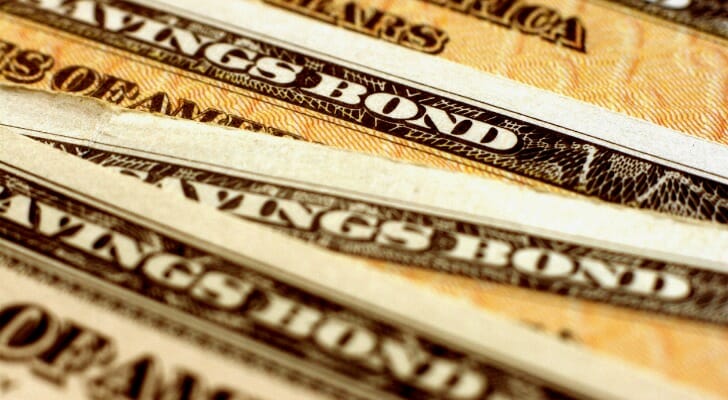
Bonds pay interest over a specified period of years. These are not flashy investments - more like slow turtles chugging away with numbers and a predictable rate of returns.
You can lose money on bonds if the price falls.
Bond prices may drop if interest rates are high, or if the bonds of a firm have a poor credit rating. Bond prices can drop if the bond issuer is bankrupt or doesn't have enough money to repay you.
When interest rates go down, bond prices can rise. Bond prices can increase when interest rates fall.
This has very little effect on the bond price in the long term, but can make it more volatile and difficult to sell for those with longer-dated debt.

Bonds are safe, but how secure are they?
Bonds are a great diversification tool, and they can help protect your portfolio against stock market downturns. In the past bonds have performed better when the economy has been weak and stocks are down.
Stock prices can fall if the bonds of a company have declined in value. Stockholders can lose money and may have to liquidate their stock holdings in order to get cash.
Can bonds lose value?
Some bond types are very risky. These are usually called junk bond. These bonds are usually issued by companies that aren't reputable, and they can be very difficult to sell. They also can lose value if the issuer goes bankrupt and can't pay you back.
Are bonds safe?
The most popular way to buy bonds is through bond funds. These funds pool the money of several investors. Each investor receives a percentage of the fund’s value.
Some bond funds have a better mix of bonds than others. Some bond funds have lower fees, and they invest a greater percentage of their assets into bonds.

Bond funds with lower total assets and higher fees are more risky.
Why are bond funds falling?
The Fed increased interest rates in the last year and caused the value of most financial assets to drop. But if interest rates were to continue rising, some investors might start looking for new ways to earn interest and principal protection - like in bonds.
Are bonds secure?
Risk is always present when investing. This is why many people invest in a mix of stocks and bond. When deciding what investments to purchase, it's important to keep your overall portfolio risk level in mind.
During bear markets, stocks tend to fall more than bonds. It's because investors, worried about the economic future, sell stocks for extra cash. Investors often move to bonds when the economy is recovering, because they are more secure.
FAQ
What is security?
Security is an asset that generates income. The most common type of security is shares in companies.
One company might issue different types, such as bonds, preferred shares, and common stocks.
The earnings per share (EPS), and the dividends paid by the company determine the value of a share.
You own a part of the company when you purchase a share. This gives you a claim on future profits. You receive money from the company if the dividend is paid.
You can always sell your shares.
What is a REIT?
A real-estate investment trust (REIT), a company that owns income-producing assets such as shopping centers, office buildings and hotels, industrial parks, and other buildings is called a REIT. They are publicly traded companies that pay dividends to shareholders instead of paying corporate taxes.
They are similar in nature to corporations except that they do not own any goods but property.
Can bonds be traded
Yes, they do! You can trade bonds on exchanges like shares. They have been for many, many years.
They are different in that you can't buy bonds directly from the issuer. They can only be bought through a broker.
Because there are fewer intermediaries involved, it makes buying bonds much simpler. This means that selling bonds is easier if someone is interested in buying them.
There are many types of bonds. There are many types of bonds. Some pay regular interest while others don't.
Some pay quarterly, while others pay interest each year. These differences make it possible to compare bonds.
Bonds can be very useful for investing your money. You would get 0.75% interest annually if you invested PS10,000 in savings. If you were to invest the same amount in a 10-year Government Bond, you would get 12.5% interest every year.
You could get a higher return if you invested all these investments in a portfolio.
How can people lose money in the stock market?
The stock market isn't a place where you can make money by selling high and buying low. It is a place where you can make money by selling high and buying low.
Stock market is a place for those who are willing and able to take risks. They are willing to sell stocks when they believe they are too expensive and buy stocks at a price they don't think is fair.
They want to profit from the market's ups and downs. But they need to be careful or they may lose all their investment.
Statistics
- Ratchet down that 10% if you don't yet have a healthy emergency fund and 10% to 15% of your income funneled into a retirement savings account. (nerdwallet.com)
- US resident who opens a new IBKR Pro individual or joint account receives a 0.25% rate reduction on margin loans. (nerdwallet.com)
- "If all of your money's in one stock, you could potentially lose 50% of it overnight," Moore says. (nerdwallet.com)
- Our focus on Main Street investors reflects the fact that American households own $38 trillion worth of equities, more than 59 percent of the U.S. equity market either directly or indirectly through mutual funds, retirement accounts, and other investments. (sec.gov)
External Links
How To
How to make your trading plan
A trading plan helps you manage your money effectively. It allows you to understand how much money you have available and what your goals are.
Before creating a trading plan, it is important to consider your goals. It may be to earn more, save money, or reduce your spending. If you're saving money you might choose to invest in bonds and shares. If you're earning interest, you could put some into a savings account or buy a house. And if you want to spend less, perhaps you'd like to go on holiday or buy yourself something nice.
Once you have a clear idea of what you want with your money, it's time to determine how much you need to start. This will depend on where you live and if you have any loans or debts. It is also important to calculate how much you earn each week (or month). The amount you take home after tax is called your income.
Next, you'll need to save enough money to cover your expenses. These expenses include rent, food, travel, bills and any other costs you may have to pay. All these things add up to your total monthly expenditure.
Finally, figure out what amount you have left over at month's end. This is your net available income.
Now you've got everything you need to work out how to use your money most efficiently.
Download one from the internet and you can get started with a simple trading plan. Ask someone with experience in investing for help.
Here's an example.
This shows all your income and spending so far. You will notice that this includes your current balance in the bank and your investment portfolio.
Here's another example. This was designed by a financial professional.
It shows you how to calculate the amount of risk you can afford to take.
Don't try and predict the future. Instead, you should be focusing on how to use your money today.